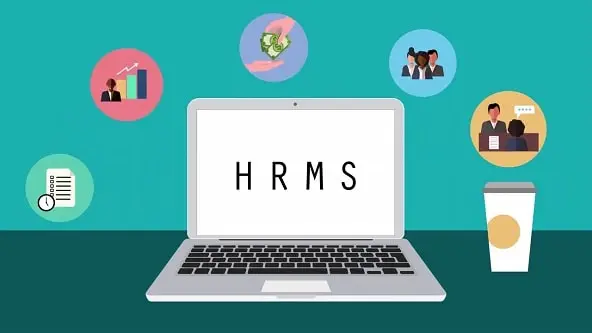At an organizational level, many tasks need to be taken care of. The Human Resource Department is one of the most critical departments in any organization. In most cases, HR professionals have too much on their plate, and this can lead to errors or misses. This is where the HRMS comes into the picture. HRMS stands for Human Resource Management System. This system can help you organize multiple tasks related to human resources. The HR department and the employees can use different HRMS software and solutions available in the market. Today, we will discuss the generalized importance of the HRMS along with its advantages & disadvantages. Let us move on to the next section to learn more about HRMS.
Why is HRMS Important?

HRMS systems are used for managing various aspects of employee relations. These tools can also be used for employee forecasts and hiring procedures. In addition, it is often said that human resource is the most valuable resource of any organization. The HRMS system can help you manage human capital. At the same time, it brings a lot of standardization and efficiency into the system. To understand the importance of HRMS in a better way, you can go through all the advantages of these solutions.
Advantages of HRMS
In this section, we have covered all the advantages of the HRMS system. You can have a look at them below –
- Compliance & Reporting – The HRMS system saves everything on the database, so you develop an outstanding level of compliance. You have all the documentation and data saved as per the leading industry standards. In addition, the HRMS also makes reporting easy. You can generate customized reports according to your needs. Talking about the reporting aspect, the HRMS cuts down a lot of manual work.
- Conflict Management – It is natural to have conflict in an organization. With the help of the HRMS, you can develop conflict management procedures. You can use the modules on the software where the employee can raise the tickets for the HRs or the Managers to review. This helps a great deal with escalation management and the implementation of internal policies.
- Employee Retention – It has been observed that the various function of the HRMS helps the employee in being confident about their workplace. The employees can communicate with HR in a better way, and this results in long-term job satisfaction. It further translates into happier employees and higher employee retention. You can even use the HRMS modules to reward the employees.
- Employee Queries& Attendance Management – Another advantage of the HRMS is that it can help you create a support desk. Using the digital support desk, the employee can reach out to HR virtually. This cuts down the resolution time for the employee. In addition, the HRMS also offers a module to manage leaves and attendance.
- Hiring Workforce – When you are hiring, you want the procedure to be quick so that you don’t lose talent to competitors. The HRMS can help you digitalize the recruitment process in such a case. You can conduct the hiring process via HRMS and onboard an employee using the same solution.
- Human Resource or Workforce Planning – Forecast and estimation is a critical task of the HR function. The HRMS can help you create these forecasts and estimates accurately. The systems can even compile information about the job grade and the job designations. So, the HRMS proves to be a crucial forecasting tool for the organization.
- Human Relation– HRMS helps create a direct link between the employee and the HR. This is certainly required for improved human relations. It removes inefficiencies from the system and helps promote transparency between the employer and the employee.
- Improvement in Productivity – It has also been observed that the implementation of the HRMS leads to improvement in productivity in the short term as well as the long term. The lead time for every process reduces, and it is all digitalized. The employees would have to spend less time on administrative tasks.
- Performance Management – HRMS also has modules that can help you with performance management. By performance management, we mean you can manage annual feedback, rewards, and salaries using the HRMS system. This also helps in employee motivation, which impacts the organization’s productivity and retention.
Disadvantages of HRMS
We have covered all the advantages of the HRMS systems, but there are some disadvantages of the HRMS too. Let us look at the other side of the coin now.
- Expensive & Time-Consuming – One problem with implementing the HRMS is that it is time-consuming, and the solutions are usually expensive. You need to train the staff to use the HRMS system, and there is a learning curve associated with these systems. Most solutions come with comprehensive training guides, but it is still an investment from the organizational point of view.
- Extensive Documentation – With the implementation of HRMS, the emphasis on documentation increases. This often takes more time in the initial phases of the adoption. Some of you may dislike documentation-intensive tasks, but at the same time, it is a good thing as well since you will have an excellent level of record-keeping.
- Lack of Standardization – HRMS is a relatively new concept, and there is a lack of standardization in the procedures. You might not have a lot of help available online if you are trying to set up the process. You will have to learn and adapt to the experience you gain by using such systems.
Final Verdict
This was all about the HRMS and its advantages. You would have gained valuable insights about the HRMS systems. These systems are also customizable. You can drop or purchase modules according to the organizational need. This level of customization also helps you get the required solution at an optimized cost. You can explore the available options and seek trial versions to understand what HRMS will meet the used case in the best possible way. If you still have any other questions about the HRMS or its pros & cons, please get in touch with us via the comment section.

Meet Suhas Harshe, a financial advisor committed to assisting people and businesses in confidently understanding and managing the complexities of the financial world. Suhas has shared his knowledge on various topics like business, investment strategies, optimizing taxes, and promoting financial well-being through articles in InvestmentDose.com


